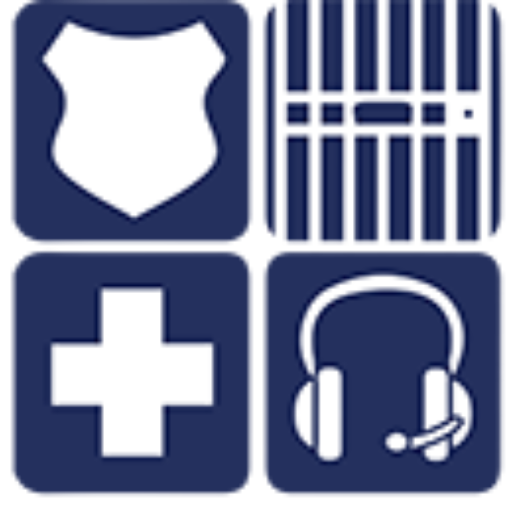Without a doubt the concepts and principals of a field training program have evolved over the last 25 years. The value of a standardized program, offering the necessary guidelines and documentation, has more than proven its worth.
When I started teaching the 40 hour FTO academy roughly 20 years ago it was not uncommon to hear from students who had not gone through any sort of an FTO program when they were first hired. A consistent story of being issued a gun, given a badge, and thrown a set of car keys was told in almost every class by at least one of the FTO students.
Thankfully it’s been a few years since I have heard such a story. That is progress, that is the evolution of field training, which is proof we are getting better as a profession. However, that should not be the end of our evolution.
We should always be looking to improve our profession, enhance our training, and set up our recruits for success.
One such area is that first day an FTO is with a student officer;
Let’s assume for a minute that several months ago your department hired a new recruit. They had anywhere from several days to several weeks before attending the state sponsored academy. During that time the recruit did all the required HR paperwork, and was issued the necessary equipment. Then off to the academy for months of training. Now they return from the academy they are ready for their first day with their FTO.
Time and time again I now hear a different story that alarms me. Brand new student officers are being thrown the car keys and told to drive on the first day of FTO. FTO’s forgetting that first phase of an FTO period is more about instruction, more training than evaluating and grading. We can do better than this, we must do better.
Over time I have learned that investing in that first day or two with a student officer dramatically increase the chances of their success in your FTO program.
Rather than “hitting the road” that first day, I plan for and choreograph a day inside, one on one with the student officer. We cover important information that sets the student officer up for success and increase my ability to later teach and evaluate the student officer.
Topics typically covered;
1. The entire FTO program:
- All the policy and procedures of the FTO program
- The week by week breakdown of what will be covered
- The different performance expectations between phase 1, 2, 3 and shadow
- How training will be conducted and signed off
- Explanation and overview of written test to be given and what constitute a passing score
- Transition letters
- The training manual as a training document
2. SEG’s (the Standardize Evaluation Guidelines)
- What are the 32 task elements that they will be evaluated on
- Issue them their own SEG booklet
- What are the anchor points
- What is an acceptable performance for each task element?
- This will save a lot time and discussion later when they know their evaluation are objective and not subject
3. DOR’s (Daily Observation Reports)
- When they will be completed
- How they will be completed
- What is the DOR’s role in the FTO program?
- Numeric ratings are for the Day, NOT for a single event
- Not all task elements will be noted each day
- Not all task elements are weighted the same
4. Major department policies and procedures
- Those topics that often get officers in trouble, topics you want them to know before they hit the street.
- Use of force
- Pursuit
- Sick leave
- Computer use
5. Local Geography
- How are streets laid out in your jurisdiction
- Main thoroughfares
- Shortcuts
- Major landmarks
- Beat configuration
- Discussion on maps, GPS, use of CAD high’s and low’s,
- What are you, as the FTO, going to allow?
6. Names and Titles
- How is the Student Officer to refer to you
- How you will refer to the student officer
- I tell the officer I will refer to them in public by “officer (their last name). IF I ever refer to them by their first name in public they should go to condition red, there is a threat they are not addressing
- How are they to refer to others in the department
- depending on the departments culture
7. Their role in the department while on FTO
- Are they allowed to go to department or crew parties?
- Participate in departmental activities such as sports leagues?
8. Your role as the FTO
- Are you their first line supervisor? If so what exactly does that mean?
9. Get to know your student officer***
- Married, kids, hobbies
- What kind of learner are they
- Audio, Visual, Kinesthetic
- What generational values do they have
- What their life experiences are
***All of these will allow you to relate to your student officer and draw upon this information to make points, create teachable moments, connect with your Student Officer to make a positive learning environment
There are many more topics and sub-topics that can be discussed depending on your departments culture, history, and expectations. The relationship and experience with neighboring jurisdictions, fire, and EMT’s are just a few additional thoughts. With a little forethought and planning I’m sure you can add to these to make this list unique to your department and lay the best possible foundation for the success of your Student Officer.
Your student officer is an adult and we know through the adult learning principals that adults will do better when they know;
- The “why” behind the training.
- When they know what the expectations are.
- What the standardize guideline they will be evaluated against.
The bottom line, invest in your Student Officers success upfront, day one.
Lt. Mark Thomas
Marysville Police Department, WA.
Mark has bee involved with the FTO program since 1996. Mark is a certified FTO instructor for the State of Washington Criminal Justice Training Commission. Mark has been an instructor at dozens of FTO academy’s throughout the state, teaching hundreds of veteran officers the skill sets, techniques, and procedures necessary to become a successful Field Training Officer. Read More about Mark…
Tags: Day one, FIrst Day, FTO, How to, Student Officer, training Last modified: April 5, 2020






